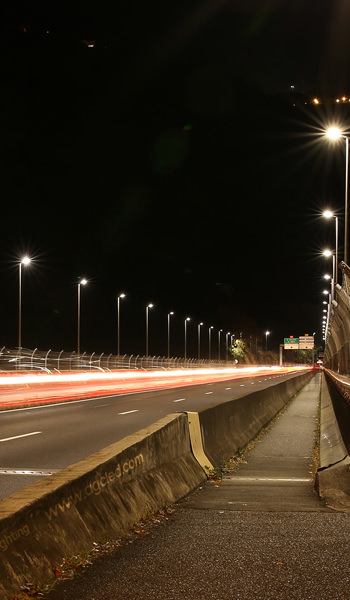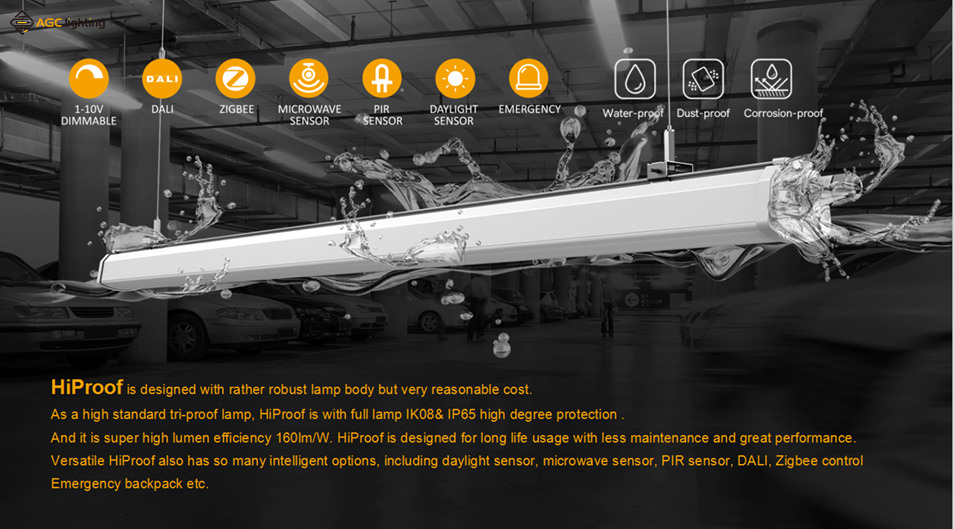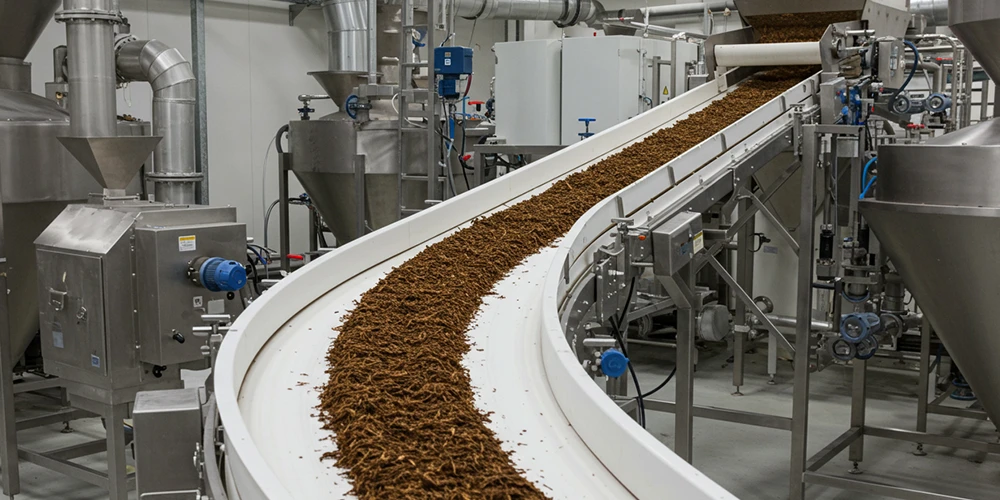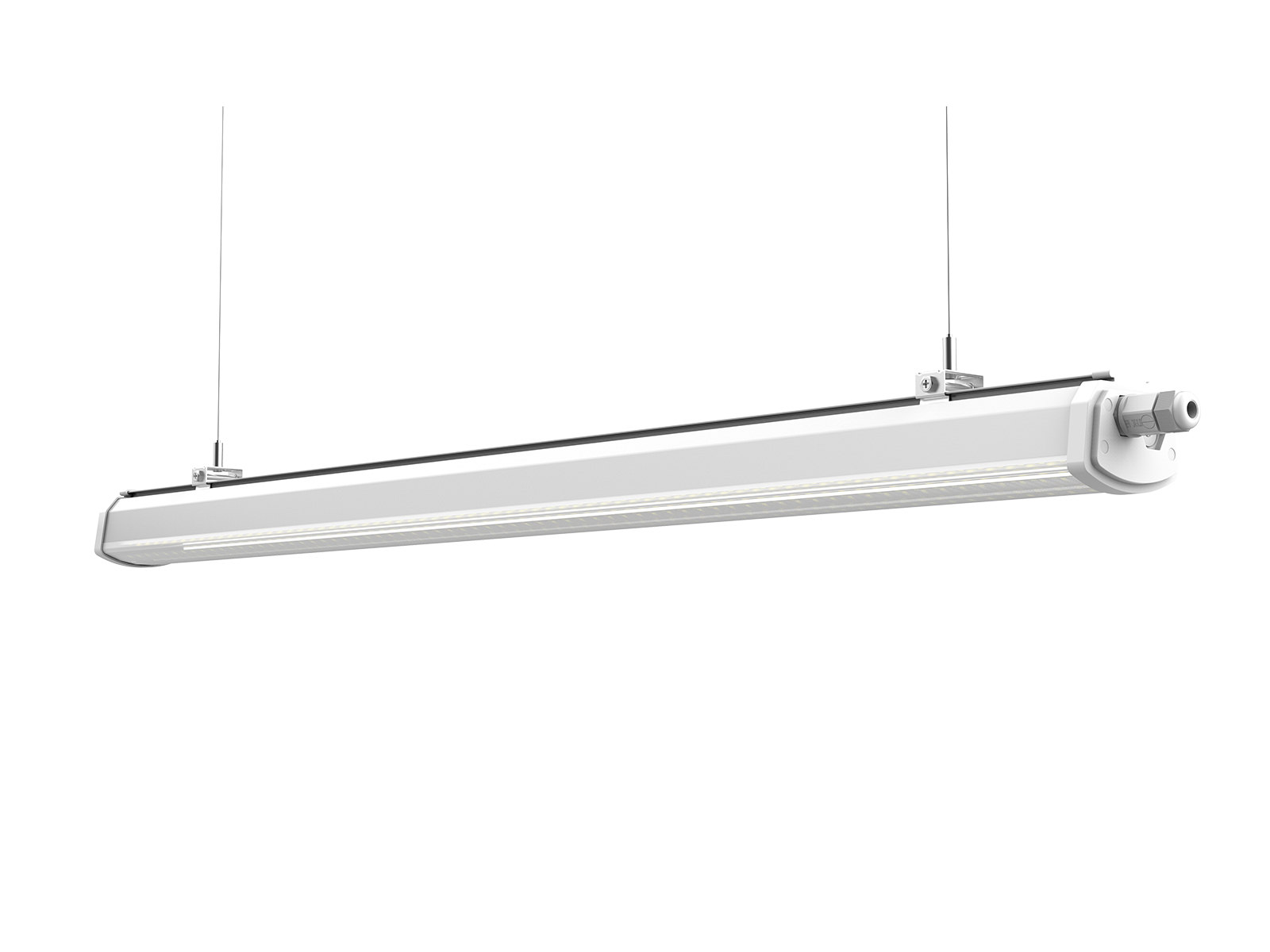Whether it is day or night, parking garages are lack of sufficient natural lights. Therefore, artificial fixtures are added in parking garages to lit the space. Safety is key factors to consider when designing parking garages. Both drivers and pedestrians have high requirements of illuminance to enhance their safety. Drivers need the clear visibility on columns, obstacle and pedestrians through aisles and parking areas during driving. Pedestrians need to recognize oncoming cars clearly from a safe distance. They also require proper illuminance to avoid hit the columns. Operators or managers of parking garages are not only concern about the safety of all but also the total amount of cost no matter new-build or retrofit a lighting system because of the 24/7/365 long lighted time. Design, selection, installation and maintenance, each steps for new-build or retrofit a lighting system seems to be complex and difficult. However, the longest journey starts with the first step. We would like to begin with the lighting design considerations.
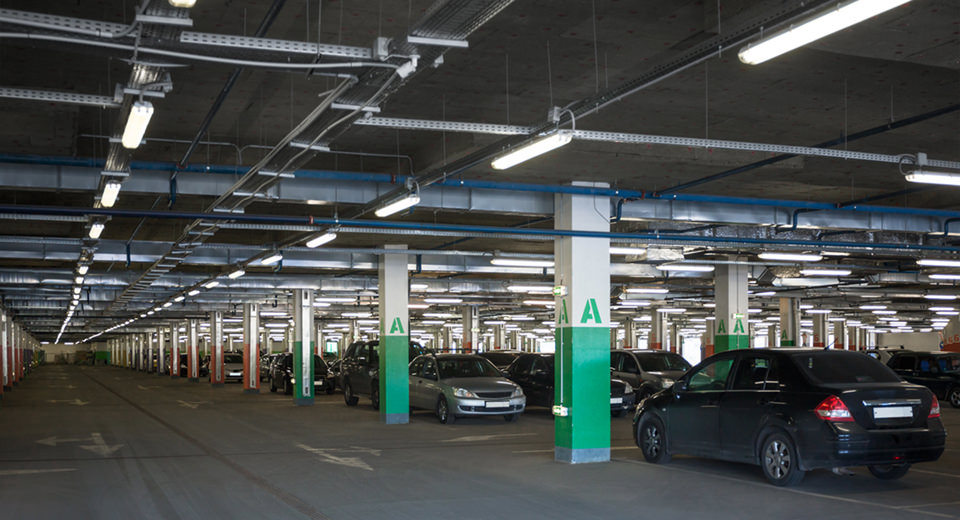
Meet lighting standards
First of all, we should obey the nation and/or local lighting standards of parking garages. The established standards are reasonable and valuable. This post refers to the lighting recommendations of IES (Illuminating Engineering Society). Here is a table of the parking structure illuminance recommendations of IES.
Area |
Minimum Horizontal Illuminance(fc) |
Maximum/ Minimum Horizontal Uniformity Ratio |
Minimum Vertical Illuminance(fc) |
|
Basic |
1.0 |
10:1 |
0.5 |
|
Ramps |
Day |
2.0 |
10:1 |
1.0 |
Night |
1.0 |
10:1 |
0.5 |
|
Entrance |
Day |
50.0 |
|
25 |
Night |
1.0 |
10:1 |
25 |
|
Stairways |
2.0 |
|
1.0 |
|
|
Basic area = typical conditions, enhanced security Ramps = clearway ramps but not to slopping floor designs Day = daylight may be considered in the design calculation Entrance = a high illuminance level for about the first 20 meters (66ft), inside the structure is needed to effect a transition from bright daylight to a lower internal level fc = foot-candle, means one lumen per square foot |
||||
From the table, we can find that ramps and entrances have higher illuminance requirements than basic area, while the illuminance requirements of entrance rank the first. When drivers transit from a certain environment to another with greatly luminance value contrasts, their eyes cannot adapt to the contrasts in a short time, resulting instantaneous blindness. Thus, it is crucial to fit the specific visibility requirements of different part of parking garage with appropriate illuminance. In daytime, entrance and ramp areas should have higher illuminance than parking areas to facilitate the eyes adapt from natural daylight to darker interior environment, or vice versa. If it is difficult to understand lighting standards, consult lighting designers or manufacturers for professional assistance.
Total cost
When it comes to the total cost of fixtures, expenditure of fixtures, installation, maintenance, energy consumption, efficacy and lifespan should be taken into account. Parking garages are usually kept on lighting from day to night but there is low activity in certain time, adding motion control will help to save energy. There are various types of fixture for parking garage, consider the main factors and then make comparison. Following table shows the comparison of major light sources factors of High Pressure Sodium, Metal Halide and Light Emitting Diode (LED).
Light Source Factor |
High Pressure Sodium |
Metal Halide |
LED |
Garage |
Acceptable |
Acceptable |
Acceptable |
Brightness |
High to very high |
High to very high |
High |
Dimmability |
Bi-Level |
Bi-Level |
Yes |
Rated Life |
Long |
Moderate long |
Long to very long |
Starting Time |
Slow |
Slow |
Instant |
Color Rendition |
Poor to fair |
Good to very good |
Very good |
Controls Friendly |
No |
No |
Yes |
Lumen Maintenance |
Good |
Fair to good |
Good |
Efficacy (Lumen/Watt) |
High to very high |
Moderate to high |
High |
Operating Position Limits |
None |
Some |
None |
The table clearly indicates that though high pressure sodium and metal halide lamps are acceptable for garages, they have shortcoming in controls friendly. Parking garages are usually lighted for a long time but there is low activity in certain period, such as late night, adding controls will help to save energy. However, don’t let parking garages in full darkness, otherwise, it will increase the risk of accident. In other words, single use of motion sensor is not benefit to safety and energy saving. Parking garages should be kept in low-lit even at late night to ensure the safety. A dimmable fixture with motion sensor may be a good choice for parking garages. The fixture lit in lower brightness during non activity period but react to traffic activity with higher illuminance.
LED fixtures are popular in commercial parking garage due to the high brightness, long rated life, high efficacy, instant starting time, good lumen maintenance and controls friendly advantages. Combine all the factors, LED fixtures are cost-effective and they are the best option for parking garage lighting.
Luminaire layout
Luminaire layout not only affects the energy use but also the safety. Appropriate luminaire layout contribute to energy saving and higher lighting performance. Single luminaires layout over drive path reduces installation time, fixtures quantity and possible energy consumption. But it will create more glare to drivers. Double luminaire layout along both sides of drive path allows better coverage and uniformity. However, more luminaires and sensors are needed in double luminaire layout, resulting higher cost.
In order to reduce glare and implement the role of guiding the traffic, the direction of the long axis of the fixture should placed in same the direction of the traffic. Parking direction ( long-axis of car body direction) is generally perpendicular to the driving direction.
Using lighting simulation tools to check whether the current luminaire layout design meets the desired lighting performance. If not, adjust the factors till meet the requirements, such as quantity, location, lumen, mounting height, uniformity, etc. AGC provide lighting design with complex 3D visualization. Looking for LED lighting solution, choose AGC if possible.
Lighting quality
Illuminance, correlated color temperature, color rendering index and lighting distribution are supposed to be considered when calculate lighting quality.
Correlated color temperature describes the color of light source, expressing the value in Kelvins (K). The range of correlated color temperature from 4500K to 6500 is suitable for most parking garages. Color rendering index means the ability to show the accurate color of object of a light source. Color rendering index ranges from 0 to 100. The higher the number, the better. Generally, a color rendering index higher than 70 is adequate for parking garages.
Lighting direction and intensity are affected by distribution. A lighting distribution with the light emitted above the horizontal line is used for improving aesthetics and atmosphere of parking garage facades. it is also attractive for driver and pedestrian due to the bright and concentrated lighting. This type of distribution is not common for the structures with ceiling because the light will be redistributed and reflected from the ceiling, causing non-uniform lighting.
The lighting distribution with a pattern like “batwing ” is widely used in parking garages. It allows larger coverage and wider angle for emitted light. Additionally, this “batwing” lighting distribution brings more uniform lighting on the ground surface while eliminate up-light if necessary.
The lighting design for parking garage seems complex and difficult, meeting the nation and/or local lighting standard helps you achieve half of the success. Safety is the most important factors for a lighting design, and then the total cost. LED fixture is a ideal option due to the outstanding cost saving and low maintenance.

